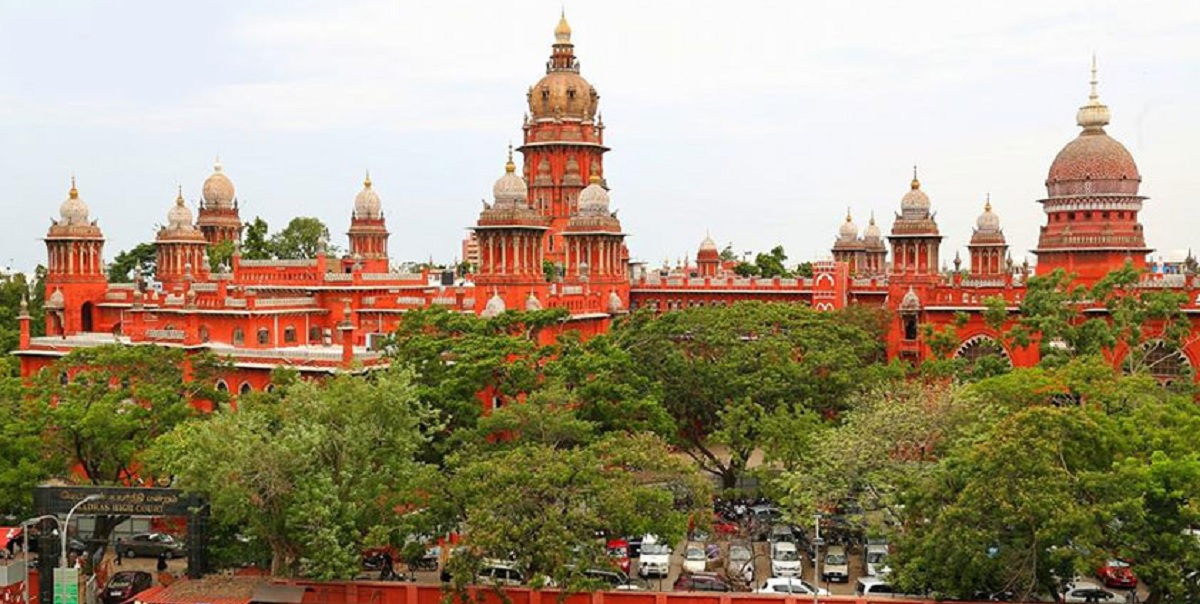The judge also stated that he leaves it to the conscience of school authorities, whether it is proper to play "kuthu songs" at school functions.

Arguing on the quo warranto petitions filed against him, Udhayanidhi's advocate P Wilson told the Court that the BJP is doing a trial on social media and is politicising the issue
In a recent hearing, the Madras High Court directed four students, who sought advance bail for vandalising their school’s classrooms and attacking junior students, to clean classrooms for a week and write essays on the published works of Mahatma Gandhi, K Kamaraj, and Dr APJ Abdul Kalam — as conditions for anticipatory bail.
The four students — Selva Muthukumar, G Greatwin P Rayen, Muthupattan, and P Raja Shankar — who were in Class 12 when the incident took place, approached the Madras High Court fearing arrest by the Yercaud police and sought anticipatory bail.
At a retreat celebrated at Montfort Anglo Indian Higher Secondary School in Yercaud, on 6 August, there was a clash between the students of Class 12 and Class 10 in connection with the issue of whose song was to be played first.
Following the altercation, the four accused students entered the hostel area and attacked their juniors and also attacked other students in the school premises, and ransacked the classrooms. Teachers and hostel wardens were injured in the attack too.
Subsequently, a police complaint was launched by the school management and the Yercaud police registered a case under Sections 147, 148, 447, 294(b), 323, 324 of the Indian Penal Code, and Section 3(2) of Tamil Nadu Public Property (Prevention of Damage and Loss) Act.
Though the petitioners claimed innocence, the school submitted CCTV footage identifying the four students before Justice RMT Teekaa Raman, who heard the case.
Recording the submissions, the judge observed that the school is situs for transformation of personality traits and for reformation via love and disciple, and education is a platform for acquisition of knowledge, as knowledge is power.
“The concept of ‘uniform as a dress code’, a novel idea envisaged by Thiru K Kamaraj, former chief minister of Tamil Nadu, was aimed at exclusion of exclusivity of economical variation amongst students; who took the education to the masses and rendered unparalleled educational services. Forget not, he, the great leader had no formal education, due to family circumstances,” the judge said.
He further observed, “It appears that online education has failed, on all fronts, to inculcate value-based education, which is a hallmark for human evolution. Teachers and students interface in the classroom mode, appears to be supreme, over the other mode (as alternate methods of learning) has failed to deliver the good/deserved results.”
The judge also stated that he leaves it to the conscience of the school authorities, whether it is proper to play such “kuthu songs” (fast beat songs) at school functions.
All the petitioners have been ordered to be released on bail in the event of arrest or on their appearance, subject to certain conditions.
The judge directed the students to appear before the headmaster of Montfort Anglo Indian Higher Secondary School and each of the petitioners shall execute a bond for a sum of ₹1,000.
Further, he ordered the students to clean and keep the classrooms (not less than four classrooms for each person) clean, including the blackboards, tables, benches, and the floors, for a week.
The students were also directed to spend time in the school library and e-library to prepare handwritten notes (not less than four pages) on non-violence — from excerpts of Mahatma Gandhi’s My Experiments With Truth, educational schemes promoted by former chief minister K Kamaraj, and the dream and vision of Dr Abdul Kalam.
“Such articles prepared by all the four students on the above topics have to be handed over to the school principal with a direction to the principal to host said articles on the school’s website for one year,” the court directed.
The judge also warned the students against plagiarism, stating that they should not “copy-paste work using Google”.
The petitioners were also directed to deposit a sum of ₹2,000 to the school’s bank account, on or before 10 October, and that the school principal shall report the compliance of the above-stated conditions to the court.

May 15, 2024

May 15, 2024

May 15, 2024

May 14, 2024

May 14, 2024

May 13, 2024